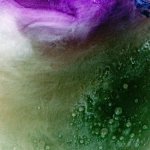Sharks may be consuming cocaine dumped in the waters off Florida and it could be making them act in “crazy” ways, scientists have said.
Researchers investigating whether drugs dumped overboard impact the region’s marine life for a documentary found some sharks appeared to be acting strangely and others responded to similar stimulants.
Smugglers have left countless tonnes of cocaine in the seas around Florida, transported from South and Central America, either to be collected by associates or to avoid arrest. The drugs are then often washed into shore on ocean currents.
Just last month, the US Coast Guard seized more than 14,100 pounds (6,400 kg) of cocaine in the Caribbean Sea and Atlantic Ocean, with an estimated value of $186m (£142m).
Marine biologist, Tom ‘The Blowfish’ Hird, and University of Florida environmental scientist, Tracy Fanara, studied sharks off the Florida Keys to see if the drugs were having any impact on them.
During one dive to observe behaviour, a great hammerhead – a species which normally avoids humans – came straight at the team and appeared to be swimming wonkily.
Researchers also recorded a sandbar shark which appeared to be fixated on something and was swimming in tight circles, despite there being nothing in sight.
Dummy drugs trigger ‘crazy’ shark feast
As well as monitoring the sharks, the scientists also put packages similar in size and appearance to real cocaine bales in the water next to dummy swans as part of their study.
To their surprise, the sharks headed straight for the bales – not the swans – taking bites from them.
One shark even grabbed a bale and swam off with it.
Next, the researchers made a bait ball of highly concentrated fish powder. This was designed to trigger a dopamine rush as close to a hit of cocaine as the team could feasibly (and ethically) do in an experiment.
When the sharks ate the powder, the researchers saw them going wild.
“I think we have got a potential scenario of what it may look like if you gave sharks cocaine,” Mr Hird said in the film Cocaine Sharks, made for Shark Week on the Discovery Channel.
“We gave them what I think is the next best thing. [It] set [their] brains aflame. It was crazy.”
Read more:
Man dies after rare tiger shark attack
Endangered shark meat ‘sold in fish and chip shops’
Be the first to get Breaking News
Install the Sky News app for free
Finally, the team dropped their fake cocaine bales from an aeroplane to simulate a real-life drug drop – and multiple shark species, including tiger sharks, moved in.
The biologist admitted many different factors could be responsible for the odd behaviour and the results don’t necessarily show that sharks in Florida are consuming cocaine.
Mr Hird said: “We have no idea what [cocaine] could do to the shark.”
He added that research shows different fish appear to react in different ways to the same chemical, Live Science reported.
“So we can’t even say ‘well this is a baseline’ and go from here,” he said.
But he said he hopes the TV programme, due to air later this month, will lead to more research in the area, and especially on how pharmaceuticals of all types affect the animals.






















